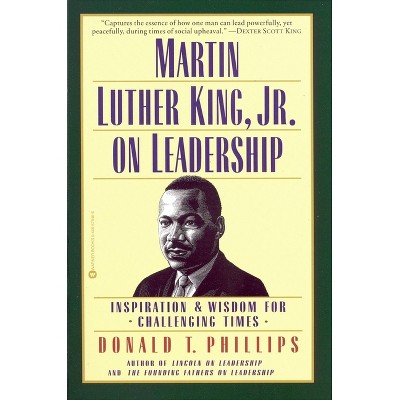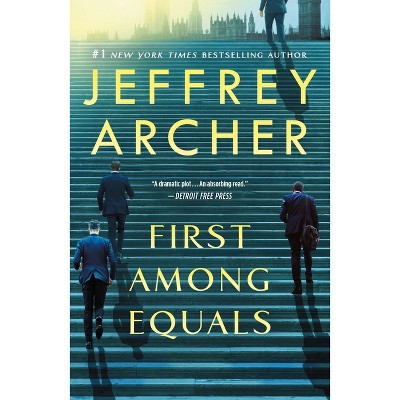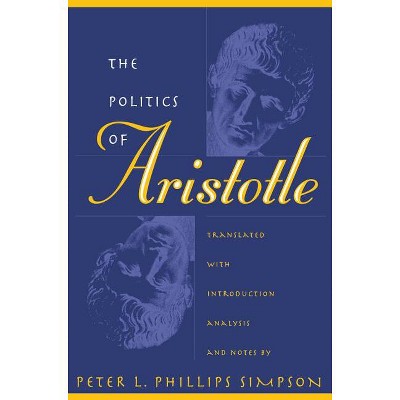Sponsored

Unconditional Equals - by Anne Phillips (Hardcover)
$42.00
In Stock
Eligible for registries and wish lists
Sponsored
About this item
Highlights
- Why equality cannot be conditional on a shared human "nature" but has to be for all For centuries, ringing declarations about all men being created equal appealed to a shared human nature as the reason to consider ourselves equals.
- About the Author: Anne Phillips is the Graham Wallas Professor of Political Science at the London School of Economics, where she previously directed the LSE Gender Institute.
- 160 Pages
- Philosophy, Political
Description
About the Book
"For centuries, ringing declarations about all men being created equal appealed to a shared human nature as the reason to consider ourselves equals. But appeals to natural equality invited gradations of natural difference, and the ambiguity at the heart of "nature" enabled generations to write of people as equal by nature while barely noticing the exclusion of those marked as inferior by their gender, race, or class. Despite what we commonly tell ourselves, these exclusions and gradations continue today. In Unconditional Equals, political philosopher Anne Phillips challenges attempts to justify equality by reference to a shared human nature, arguing that justification turns into conditions and ends up as exclusion. Rejecting the logic of justification, she calls instead for a genuinely unconditional equality. Drawing on political, feminist, and postcolonial theory, Unconditional Equals argues that we should understand equality not as something grounded in shared characteristics but as something people enact when they refuse to be considered inferiors. At a time when the supposedly shared belief in human equality is so patently not shared, the book makes a powerful case for seeing equality as a commitment we make to ourselves and others, and a claim we make on others when they deny us our status as equals."--Publisher's description.Book Synopsis
Why equality cannot be conditional on a shared human "nature" but has to be for all
For centuries, ringing declarations about all men being created equal appealed to a shared human nature as the reason to consider ourselves equals. But appeals to natural equality invited gradations of natural difference, and the ambiguity at the heart of "nature" enabled generations to write of people as equal by nature while barely noticing the exclusion of those marked as inferior by their gender, race, or class. Despite what we commonly tell ourselves, these exclusions and gradations continue today. In Unconditional Equals, political philosopher Anne Phillips challenges attempts to justify equality by reference to a shared human nature, arguing that justification turns into conditions and ends up as exclusion. Rejecting the logic of justification, she calls instead for a genuinely unconditional equality. Drawing on political, feminist, and postcolonial theory, Unconditional Equals argues that we should understand equality not as something grounded in shared characteristics but as something people enact when they refuse to be considered inferiors. At a time when the supposedly shared belief in human equality is so patently not shared, the book makes a powerful case for seeing equality as a commitment we make to ourselves and others, and a claim we make on others when they deny us our status as equals.Review Quotes
"
Conceptually rich and compulsively readable.--David Livingstone Smith, Notre Dame Philosophical Reviews
""Unsettlingly brilliant. . . . Her work is proof positive of the richness of political theory in its authentically Aristotelian sense: as the abstract contemplation of politics for the sake of doing it better--if not always well."---Teresa M. Bejan, Boston Review
About the Author
Anne Phillips is the Graham Wallas Professor of Political Science at the London School of Economics, where she previously directed the LSE Gender Institute. Her books include Engendering Democracy; The Politics of Presence; Which Equalities Matter?; Multiculturalism without Culture (Princeton); Our Body, Whose Property? (Princeton); and The Politics of the Human.Dimensions (Overall): 9.29 Inches (H) x 6.06 Inches (W) x .87 Inches (D)
Weight: .95 Pounds
Suggested Age: 22 Years and Up
Number of Pages: 160
Genre: Philosophy
Sub-Genre: Political
Publisher: Princeton University Press
Format: Hardcover
Author: Anne Phillips
Language: English
Street Date: September 21, 2021
TCIN: 1005879435
UPC: 9780691210353
Item Number (DPCI): 247-42-9025
Origin: Made in the USA or Imported
If the item details aren’t accurate or complete, we want to know about it.
Shipping details
Estimated ship dimensions: 0.87 inches length x 6.06 inches width x 9.29 inches height
Estimated ship weight: 0.95 pounds
We regret that this item cannot be shipped to PO Boxes.
This item cannot be shipped to the following locations: American Samoa (see also separate entry under AS), Guam (see also separate entry under GU), Northern Mariana Islands, Puerto Rico (see also separate entry under PR), United States Minor Outlying Islands, Virgin Islands, U.S., APO/FPO
Return details
This item can be returned to any Target store or Target.com.
This item must be returned within 90 days of the date it was purchased in store, shipped, delivered by a Shipt shopper, or made ready for pickup.
See the return policy for complete information.











